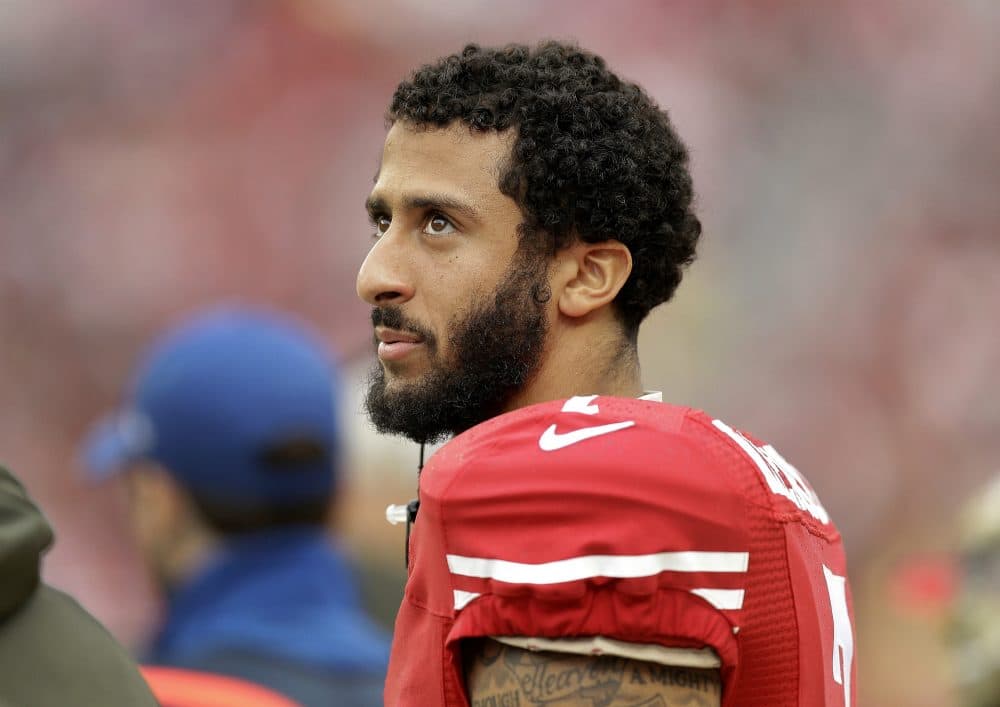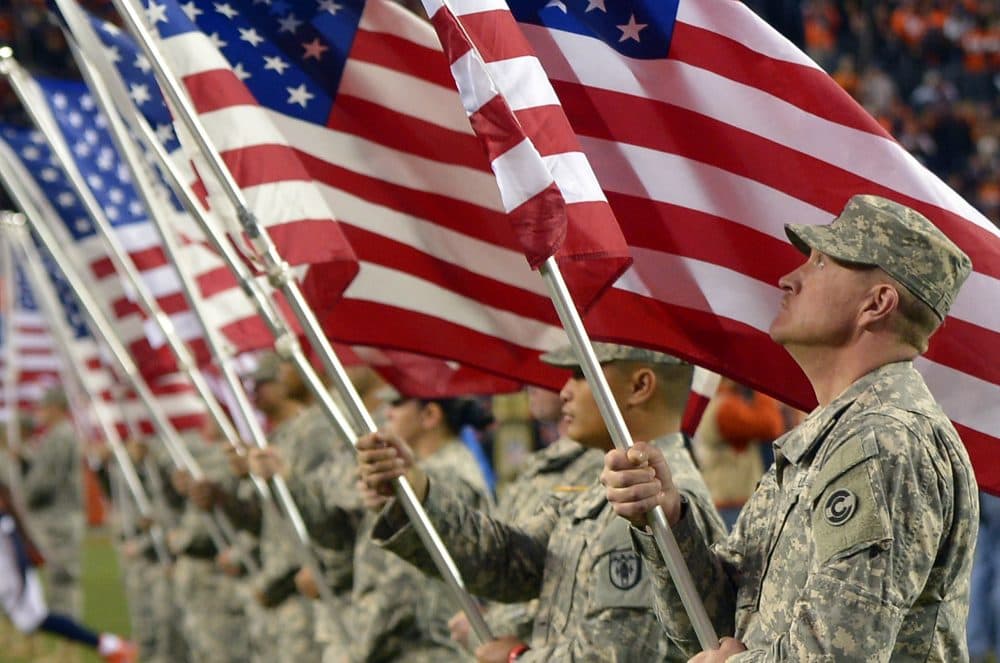Advertisement
Parsing Patriotism: Colin Kaepernick, The NFL And America's Troops

San Francisco 49ers quarterback Colin Kaepernick caused a firestorm this week by remaining seated during the national anthem before a preseason game against the Green Bay Packers. "I am not going to stand up to show pride in a flag for a country that oppresses black people and people of color," Kaepernick told NFL media following the game. Predictably, the instance has provoked a good deal of public outrage, with pundits and armchair social-media commentators falling over one another to take umbrage to the 28-year-old NFL player’s departure from protocol.
Much of the criticism has been framed thusly: Kaepernick’s refusal to stand during the national anthem is an affront to our military men and women and the sacrifices they have made. Minnesota Vikings guard Alex Boone, a former teammate of Kaepernick’s whose brother served as a Marine, neatly summarized this argument: “That flag obviously gives [Kaepernick] the right to do whatever he wants. I understand it. At the same time, you should have some [expletive deleted] respect for people who served, especially people that lost their life to protect our freedom. We’re out here playing a game, making millions of dollars. People are losing their life, and you don’t have the common courtesy to do that. That just drove me nuts.”
The discussion of Kaepernick’s decision not to stand during the national anthem obfuscates the entire conversation surrounding what we owe to those whom we send to war.
As a veteran, I find the passion swirling around this instance of low-grade civil disobedience absurd. For years, the NFL and other professional and collegiate sports organizations have used active service members and veterans as props for their events. At best, these pregame ceremonies and Zamboni rides have been tokenistic promotions of the organization’s “support” for the troops. At worst, they have been cynical partnerships, transferring taxpayer dollars to billionaire owners.
Serving as the public affairs officer for a coalition task force in Afghanistan in 2012, I was charged with filming shout-outs from service members for their favorite March Madness college basketball teams. These brief spots were meticulously staged, usually shot in front of Hesco barriers or a bunker with the Afghan mountains rising in the background. The subjects appeared exactly as the American public prefers to picture its men and women at arms: intrepid and enthusiastic defenders of freedom in a foreign land.

What wasn’t broadcast to fans in stadiums and during commercial breaks were the lines of caskets being loaded onto planes, the tearful goodbyes to fallen comrades, the devastated families receiving folded flags from uniformed messengers. Such images would have been unseemly preludes to the tire commercials and beer company messages with which they shared televised ad space.
Most Americans behave as though supporting the troops rests entirely on trivial acts of ceremony. How could they possibly think differently when large institutions such as the NFL, to say nothing of the media outlets that glommed onto this latest controversy, reinforce the idea that shallow, flag-waving, bumper-sticker patriotism constitutes an endorsement of our men and women in uniform and that any departure from it is an insult?
The biggest problem with this mindset is that it offers us as a society an easy out. It allows for brief, un-nuanced public displays of affection and gratitude that distract us from the real issues that face our soldiers, sailors, airmen and Marines, such as access to health care, a staggering suicide rate and continued overseas engagements, with little in the way of public awareness or debate.
...shallow, flag-waving, bumper-sticker patriotism constitutes an endorsement of our men and women in uniform and... any departure from it is an insult.
The discussion of Kaepernick’s decision not to stand during the national anthem obfuscates the entire conversation surrounding what we owe to those whom we send to war. Additionally, it distracts from the NFL’s own putrid record when it comes to substantive support for our military. I think most would agree that attempting to block funding of a study that could help returning soldiers struggling with traumatic brain injuries, as well as football players, is a greater betrayal of those who protect us than Kaepernick’s refusal to conform to decorum.
It would be heartening to see our country’s thought leaders and large institutions use this as an opportunity for a serious examination of America’s relationship with its military members and their families. Given the state of our social discourse, I am not optimistic that will be the case. Complicated issues cannot be addressed in 140 characters.
